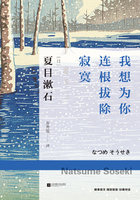The place of the clergyman in society had been completely changed by the Reformation. Before that event, ecclesiastics had formed the majority of the House of Lords, had, in wealth and splendour, equalled, and sometimes outshone, the greatest of the temporal barons, and had generally held the highest civil offices. Many of the Treasurers, and almost all the Chancellors of the Plantagenets were Bishops. The Lord Keeper of the Privy Seal and the Master of the Rolls were ordinarily churchmen. Churchmen transacted the most important diplomatic business. Indeed all that large portion of the administration which rude and warlike nobles were incompetent to conduct was considered as especially belonging to divines. Men, therefore, who were averse to the life of camps, and who were, at the same time, desirous to rise in the state, commonly received the tonsure. Among them were sons of all the most illustrious families, and near kinsmen of the throne, Scroops and Nevilles, Bourchiers, Staffords and Poles. To the religious houses belonged the rents of immense domains, and all that large portion of the tithe which is now in the hands of laymen. Down to the middle of the reign of Henry the Eighth, therefore, no line of life was so attractive to ambitious and covetous natures as the priesthood. Then came a violent revolution. The abolition of the monasteries deprived the Church at once of the greater part of her wealth, and of her predominance in the Upper House of Parliament. There was no longer an Abbot of Glastonbury or an Abbot of Reading, seated among the peers, and possessed of revenues equal to those of a powerful Earl. The princely splendour of William of Wykeham and of William of Waynflete had disappeared. The scarlet hat of the Cardinal, the silver cross of the Legate, were no more. The clergy had also lost the ascendency which is the natural reward of superior mental cultivation. Once the circumstance that a man could read had raised a presumption that he was in orders. But, in an age which produced such laymen as William Cecil and Nicholas Bacon, Roger Ascham and Thomas Smith, Walter Mildmay and Francis Walsingham, there was no reason for calling away prelates from their dioceses to negotiate treaties, to superintend the finances, or to administer justice. The spiritual character not only ceased to be a qualification for high civil office, but began to be regarded as a disqualification. Those worldly motives, therefore, which had formerly induced so many able, aspiring, and high born youths to assume the ecclesiastical habit, ceased to operate. Not one parish in two hundred then afforded what a man of family considered as a maintenance. There were still indeed prizes in the Church: but they were few; and even the highest were mean, when compared with the glory which had once surrounded the princes of the hierarchy. The state kept by Parker and Grindal seemed beggarly to those who remembered the imperial pomp of Wolsey, his palaces, which had become the favorite abodes of royalty, Whitehall and Hampton Court, the three sumptuous tables daily spread in his refectory, the forty-four gorgeous copes in his chapel, his running footmen in rich liveries, and his body guards with gilded poleaxes. Thus the sacerdotal office lost its attraction for the higher classes.
During the century which followed the accession of Elizabeth, scarce a single person of noble descent took orders. At the close of the reign of Charles the Second, two sons of peers were Bishops; four or five sons of peers were priests, and held valuable preferment: but these rare exceptions did not take away the reproach which lay on the body. The clergy were regarded as, on the whole, a plebeian class.77 And, indeed, for one who made the figure of a gentleman, ten were mere menial servants. A large proportion of those divines who had no benefices, or whose benefices were too small to afford a comfortable revenue, lived in the houses of laymen. It had long been evident that this practice tended to degrade the priestly character. Laud had exerted himself to effect a change; and Charles the First had repeatedly issued positive orders that none but men of high rank should presume to keep domestic chaplains.78 But these injunctions had become obsolete. Indeed during the domination of the Puritan, many of the ejected ministers of the Church of England could obtain bread and shelter only by attaching themselves to the households of royalist gentlemen; and the habits which had been formed in those times of trouble continued long after the reestablishment of monarchy and episcopacy. In the mansions of men of liberal sentiments and cultivated understandings, the chaplain was doubtless treated with urbanity and kindness. His conversation, his literary assistance, his spiritual advice, were considered as an ample return for his food, his lodging, and his stipend. But this was not the general feeling of the country gentlemen. The coarse and ignorant squire, who thought that it belonged to his dignity to have grace said every day at his table by an ecclesiastic in full canonicals, found means to reconcile dignity with economy. A young Levite--such was the phrase then in use--might be had for his board, a small garret, and ten pounds a year, and might not only perform his own professional functions, might not only be the most patient of butts and of listeners, might not only be always ready in fine weather for bowls, and in rainy weather for shovelboard, but might also save the expense of a gardener, or of a groom.















